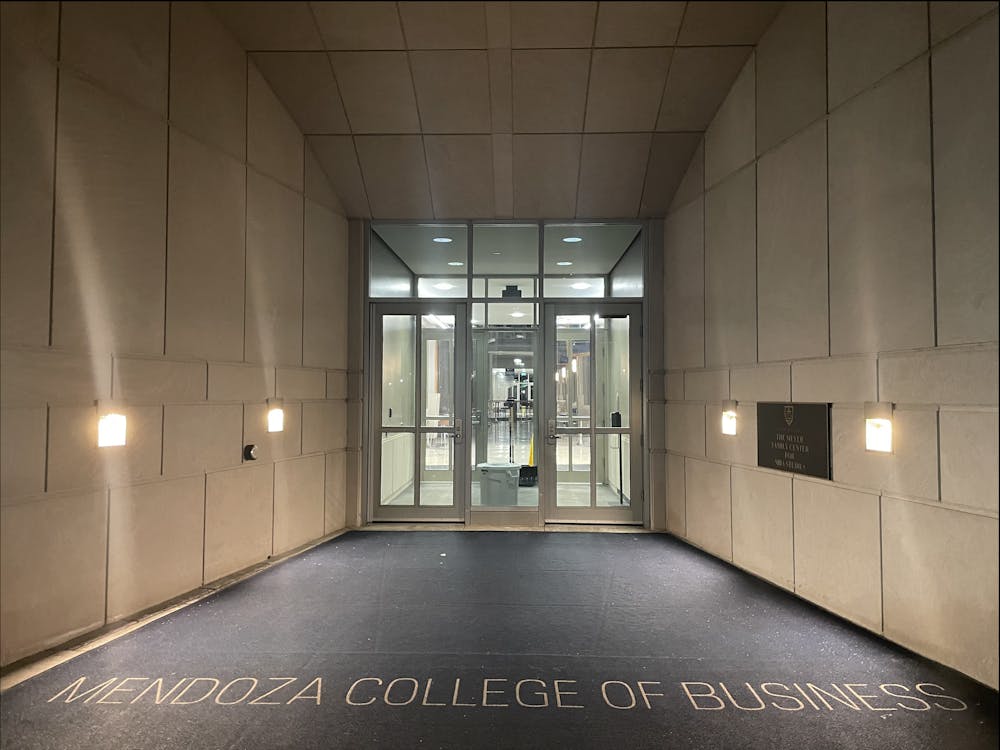For over 50 years, the Vivian Harrington Gray Notre Dame-Saint Mary’s Tax Assistance Program (TAP) has provided free income tax return preparation services for low-income residents of the South Bend community.
TAP’s services are legally available to any U.S. citizen or permanent legal resident living in Indiana or Michigan who has an individual income of less than $32,000, or less than $64,000 for families.
TAP was established in 1972 by accountancy professor Ken Milani, who founded the initiative after just three weeks on the job.
“When I was in graduate school, I helped fellow students and others with their income tax filing. Given my ‘blue-collar’ background, I was ready, willing and able to help,” Milani said.
Milani served as faculty coordinator of TAP for nearly 40 years, overseeing the program’s growth from one location in 1972 to a dozen at the end of his tenure. He also helped integrate TAP with a similar program offered by the Internal Revenue Service.
“When the IRS began its VITA (Volunteer Income Tax Assistance) effort, Notre Dame was one of the first universities to become involved,” Milani said. He would go on to specify that he was even part of an effort to prepare training materials for other institutions that partnered with the VITA program.
TAP is currently run by accountancy professor Colleen Creighton, who took over the position in 2018. According to Creighton, one major change during her tenure was incorporating tax software supplied by the IRS into the return process.
“The use of the software reduced the number of clerical errors and also shortened the time for refunds,” Creighton explained. “As a general rule, returns that are e-filed receive refunds in two to three weeks. The time frame for refunds on paper returns can be as long as six weeks.”
TAP is controlled by the department of accountancy within the Mendoza College of Business and is headed by University faculty. However, students have played a pivotal role within the organization from its inception.
The program is staffed almost exclusively by undergraduate and graduate volunteers. Per Creighton, there are currently 59 volunteers, including 24 who are pursuing their masters in accountancy, 25 Notre Dame undergraduates and 10 students from Saint Mary’s.
The students take a University class which trains them for filing tax returns, and must then pass a test to become certified by the IRS.
“Students have four weeks of classroom instruction and spend the rest of the semester in the community preparing tax returns and assisting individuals and families. It’s a win-win for our students and the community,” Creighton said.
One current student volunteer is senior Zach Uhl, who is in his second year with TAP.
“I was interested in the Tax Assistance Program from the moment I became aware of it. It provides a unique opportunity for accounting students to use the skills they have learned to serve those who are less fortunate,” Uhl said. “While the experience is typically financially rewarding to our taxpayers, it is equally rewarding for the preparers.”
Hailan Qian, a masters of accounting student who is also in her second year with TAP, highlighted both the practical and the personable applications of the job.
“It is pretty cool to see how I can directly apply what I learned in my major to make a tangible impact for taxpayers, such as helping them take advantage of tax credits they didn’t know about,” she said. “I also thought the TAP would be a terrific way to build my communication skills and gain familiarity with tax returns.”
Alumni of the program have entered careers as certified public accountants and university faculty, and others have established other free tax return organizations in their local area, Milani said.
Frank Agostino, an attorney for South Bend firm AAK Law, reflected on his experiences with TAP as a teaching assistant for Milani in 1991.
“You meet a diverse group of people at the tax assistance centers. Some are in financial need and survive on the refunds. Some are elderly and just need help with the complex forms,” Agostino said. “I would say that TAP was being Catholic: help others in their time of need because you would want to be helped too in your time of need.”










